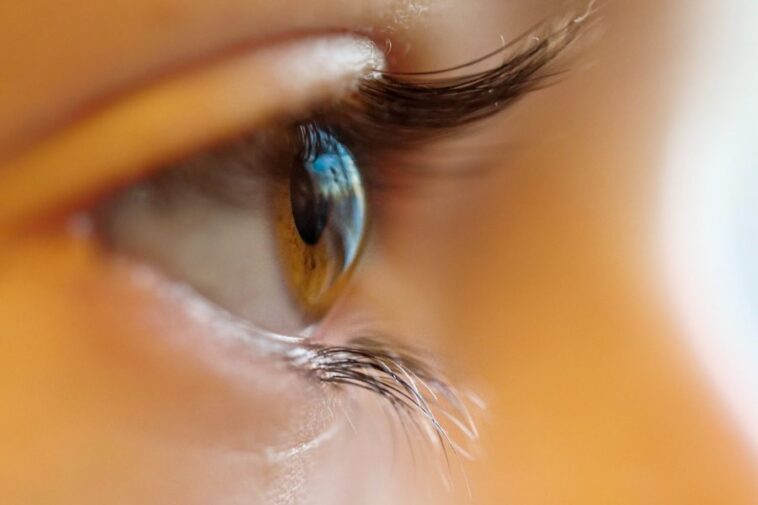Our eyes are often described as windows to the soul but they are also windows to our overall health. Healthy eyes are essential for a good quality of life, as they allow us to see and experience the world around us. Proper eye health extends beyond just seeing clearly; it also impacts our safety, well-being, and daily activities. Without good eye health, our ability to work, learn, and enjoy life to the fullest can be compromised.
Over the years, contact lenses have become increasingly popular as a vision correction option. Millions of people worldwide have embraced contact lenses as a convenient and effective way to correct vision problems, offering an alternative to traditional eyeglasses. However, this surge in popularity has also brought attention to the importance of forming habits that ensure the safety and health of our eyes while using contact lenses.
Understanding Common Eye Issues
Before delving into the world of eye health and contact lenses, it’s important to understand the complexity of our eyes, a remarkable organ comprised of various parts working together to create the gift of sight.

While contact lenses offer many benefits to improve eyesight, they can also introduce challenges if not used correctly. Some of these challenges include:
- Dry Eyes: Prolonged contact lens wear can lead to dryness and discomfort.
- Eye Infections: Inadequate cleaning and hygiene practices can result in infections.
- Corneal Ulcers: A serious condition that can develop if bacteria or fungi penetrate the cornea.
How Habits And Contact Lens Use Affect Eye Health
Habits are powerful drivers of our behavior. From the moment we wake up to the time we go to bed, our lives are guided by the habits we’ve formed.
Whether good or bad, habits influence our daily choices and routines. Recognizing their impact is essential to making positive changes and it would be prudent to adopt these good habits when it comes to health and contact lens use:
Handwashing
The foundation of good contact lens hygiene starts with clean hands. Before touching your contact lenses or your eyes, wash your hands thoroughly with soap and water, then dry them with a lint-free towel. This step is vital in preventing the transfer of bacteria and dirt onto your lenses, reducing the risk of eye infections
Follow Your Eye Care Professional’s Advice
Always adhere to the recommendations provided by your eye care professional. They will prescribe the appropriate lens type, wearing schedule, and care routine based on your specific needs. Ignoring their guidance can lead to discomfort and eye complications.
Strictly Follow the Wearing Schedule
Many contact lenses come in various wear schedules, such as daily disposables, bi-weekly, or monthly lenses. Stick to the recommended wearing duration and replace your lenses as directed. Overextending the wear time can lead to irritation, dryness, and infection risk.
Lens Cleaning and Storage
If you are using reusable lenses, proper cleaning and storage are crucial. Use the prescribed contact lens solution to clean, rinse, and disinfect your lenses daily. Never use tap water, saliva, or homemade saline solutions to clean or store your lenses, as these can introduce harmful microorganisms to your eyes.
Avoid Sleeping with Lenses
Sleeping with contact lenses can restrict oxygen flow to your corneas and increase the risk of infections, such as corneal ulcers. Unless your eye care professional has specifically recommended extended-wear lenses, remove your lenses before bedtime. Learn more about sleeping with contact lenses from EyeFacts.com.
Handle with Care
When inserting or removing your contact lenses, take your time and be gentle. Avoid using excessive force or pinching, as this can damage both your lenses and your eyes. Properly align the lens on your fingertip before placing it on your eye.
Replace Lens Cases Regularly
Lens cases can harbor bacteria and fungi, leading to eye infections. Replace your lens case every three months, or follow the guidance provided by your eye care specialist. Clean and air-dry the case daily to maintain cleanliness.
Avoid Swimming and Hot Tubs
Contact lenses and water do not mix well. Remove your lenses before swimming, using hot tubs, or engaging in water activities. Water can introduce harmful microorganisms to your eyes, leading to potentially serious infections.
Respect Your Eyes
If your eyes feel irritated, dry, or uncomfortable, remove your lenses and give your eyes a break. Overusing contact lenses in such situations can exacerbate problems and increase the risk of complications.
The Impact of Prolonged Screen Time on the Eyes
People are spending more time than ever in front of screens – from smartphones and computers to tablets and televisions. This extended screen time can lead to eye strain and discomfort, compounding the challenges faced by contact lens wearers.
When we gaze at screens, we often reduce our blinking frequency, and the constant movement on the screen requires our eyes to work harder to maintain focus. Additionally, screens are frequently not positioned at the ideal distance or angle, compounding the strain. The cumulative effect of these issues can have lasting repercussions on vision, especially among children.
- Eye Fatigue: Prolonged screen exposure can lead to eye fatigue, which can manifest as symptoms such as double vision, headaches, and difficulties in maintaining concentration.
- Dry and Irritated Eyes: Screen-related activities are associated with decreased blinking, which can result in dry and irritated eyes. Preventing dry eye is crucial for maintaining eye health and avoiding blurred vision.
- Reduced Focus Adaptability: While a diminishing ability to adapt focus is typically associated with aging, excessive screen time can affect our capacity to quickly adjust our vision for various distances.
- Myopia (Nearsightedness): The tendency for screen-related activities to keep children indoors can have long-term implications for their eye health. Exposure to natural daylight is crucial for the healthy development of young eyes, and research indicates that children who spend more time indoors are at a higher risk of developing nearsightedness. A study from Anglia Ruskin University explored the link between excessive screen time and eye health, increasing the risk for short-sightedness by up to 80%.
- Retinal Damage: Digital devices emit blue light, which can penetrate deep into the inner lining of the eye, known as the retina. A study in the journal Life indicated that prolonged exposure to this blue light can damage light-sensitive cells in the retina. This damage can increase the risk of early age-related macular degeneration, a condition that can result in vision loss. Notably, the American Optometric Association has highlighted that children are more susceptible to the adverse effects of this high-energy light when exposed to it.
If you have these issues, don’t skip your eye exams. These appointments allow your eye care professional to monitor your eye health and assess the condition of your contact lenses. If you experience discomfort or changes in vision, consult your eye doctor promptly.
Conclusion
The rewards of healthy eye care practices are well worth the effort and dedication. Forming healthy habits for your eyes and contact lens use is crucial for preserving your vision and overall well-being. Strategies such as setting realistic goals, finding an accountability partner, and seeking professional guidance can help you break free from bad habits.
By understanding common eye issues, incorporating daily practices, prioritizing nutrition, staying informed, and seeking professional guidance, you can enjoy a lifetime of clear and comfortable vision.





